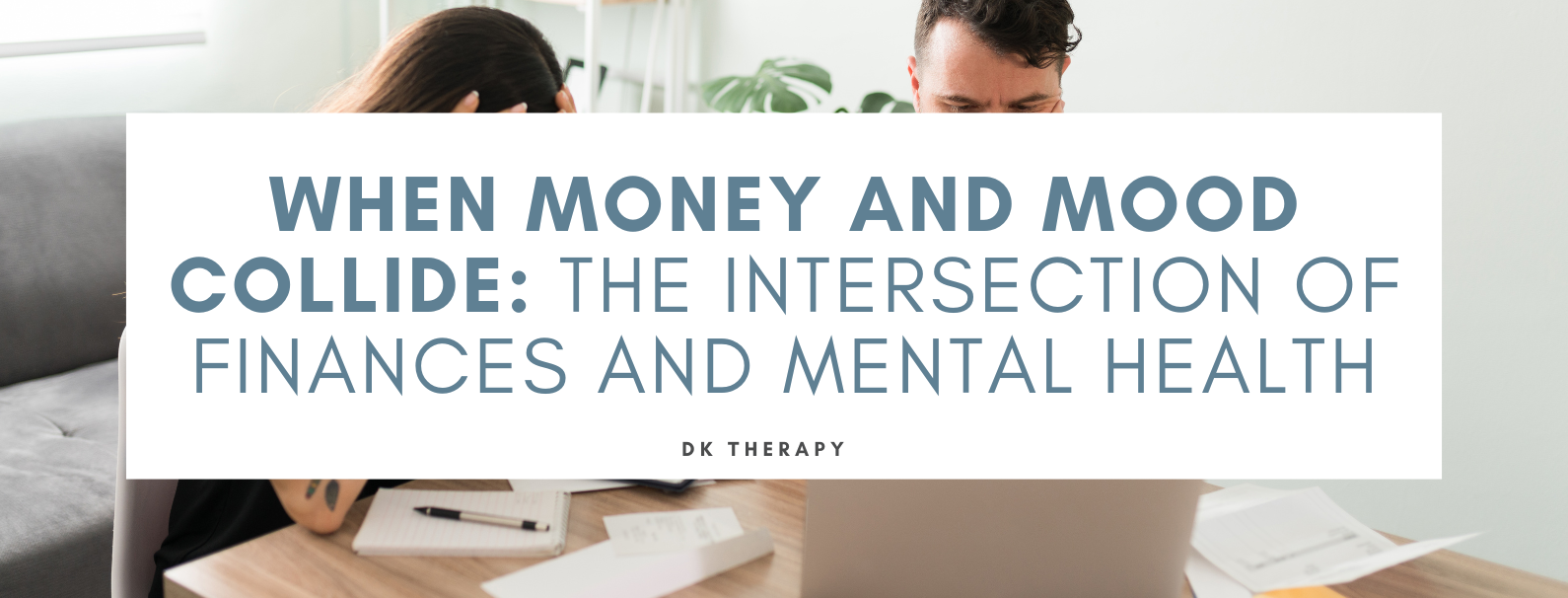
A person’s money and their mental health can be very intertwined. Each of these elements has the potential to affect the other in numerous ways. Financial stress can lead to heightened anxiety, depression, and hopelessness, while mental health issues can affect a person’s ability to make money and cover their expenses.
With the cost of living constantly on the rise and financial challenges becoming increasingly difficult, it’s important to understand the connection between money and mood, and how to maintain balance.
The Cycle of Financial Stress and Mental Health
 For many, financial struggles tend to trigger their emotional turmoil. They could be dealing with the weight of mounting debt, worries about job security, or their ability to afford daily necessities. This type of challenge can very well lead to mental health issues due to added fears about being unable to meet basic needs.
For many, financial struggles tend to trigger their emotional turmoil. They could be dealing with the weight of mounting debt, worries about job security, or their ability to afford daily necessities. This type of challenge can very well lead to mental health issues due to added fears about being unable to meet basic needs.
Once mental health begins to suffer, it can create a pattern of financial mismanagement. Individuals who are dealing with mental health challenges may find it harder to focus on managing their money. This can result in late payments, overspending, or poor financial planning. The cycle can perpetuate itself as well, with each issue compounding the other.
Anxiety and Financial Worry
One of the most common mental health conditions affected by financial stress is anxiety. Frequently worrying about bills, rent, and other financial obligations can lead to many sleepless nights, which can make it easier to get overwhelmed or become irritable. Financial anxiety is particularly prevalent during times of economic downturns when job security becomes uncertain.
Those with anxiety may also avoid addressing their financial situation altogether. They might ignore bills, fail to open bank statements, or feel paralyzed when it comes to making financial decisions. Unfortunately, avoidance only exacerbates the problem.
Depression and Hopelessness
Financial hardship can also lead to feelings of hopelessness and depression. When people feel that no matter what they do, they can’t escape their debts, they may feel their situation is unchangeable. Being stuck can erode one’s self-esteem, motivation, and even their desire to interact with others.
In turn, depression often hinders a person’s ability to take control of their finances. It can sap both energy and focus and make tasks like budgeting feel insurmountable.
How Mental Health Challenges Affect Finances
Mental health issues can affect one’s judgment, which may lead to impulsive spending, risky investments, or avoiding responsibilities altogether. For example, those experiencing mania may make unplanned purchases that strain their finances. Someone with severe anxiety, on the other hand, might fear spending money entirely, which results in missed opportunities to invest in their future.
Further, those with mental health issues might not feel able to seek help. Reaching out to a financial advisor or speaking with a counselor may seem too overwhelming with so much already on the individual’s plate.
Coping Strategies for Managing Financial Stress and Mental Health
Though the connection between finances and mental well-being is significant, there are a few strategies you can try to break the cycle.
Seek Professional Help
If financial stress is affecting your mental health, contact both a mental health professional and a financial advisor. You’re not burdening them by seeking the services they’re offering. A financial advisor can help you create a financial management plan and an experienced counselor can help you manage the mental health aspects of your situation.
Create a Budget
Establishing a realistic budget is a must in alleviating financial stress. Having a plan to pay bills and eliminate debts can provide a sense of control and reduce your anxiety.
Set Achievable Goals
Financial issues don’t correct themselves overnight, so instead of approaching such a difficult goal as-is, break it down into simple steps. Focus on one issue at a time, like paying off a small debt or saving a certain dollar amount every month.
Financial stress can easily trigger anxiety and depression, while mental health challenges can make it difficult to manage money. Breaking the cycle calls for both emotional and financial support, along with strategies to regain control.
If you’re struggling and you believe therapy would be beneficial, reach out to DK Therapy.




